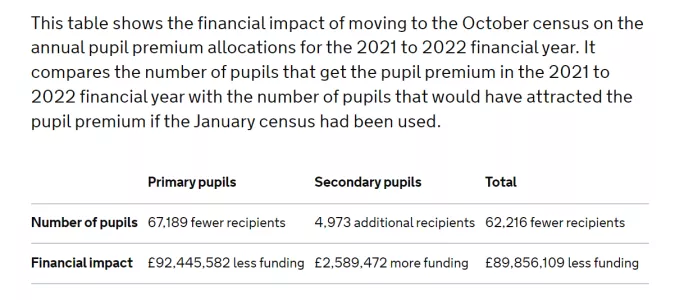The government has finally revealed the true cost of its controversial “stealth” cut to school funding for the country’s poorest pupils.
Until now the Department for Education had refused to specify the amount that schools were set to lose from its decision to calculate pupil premium allocations for 2021-22 based on a census from last October, and not in January - when more children would have been eligible for the cash.
Now the department has published an estimate for the “overall impact” of the change, amounting to “approximately £90 million”.
Background: Teachers ‘sickened’ as DfE delays cash for poor pupils
Exclusive: DfE’s valuation of ‘stealth cut’ kept secret
Investigation: ‘Come clean’ on funding gap, DfE told
Nick Gibb: Schools ‘won’t lose out over pupil premium change’
Watch: ‘Insulting’ funding change hits school catch-up
Today’s data shows that the census shift will cost primary schools £92,445,582, while secondaries are actually set to gain £2,589,472 from the change.
This leaves a total funding gap of £89,856,109.
Kate Green, Labour’s shadow education secretary, has described the policy shift as a “stealth cut”, arguing that the Conservative Party has “neglected children through this pandemic”.
A Department for Education spokesperson said: “Pupil premium funding has risen for the majority of schools, to more than £2.5 billion overall this year - an increase of £60 million compared to last year. Combined with our ambitious long-term education recovery plan, this will ensure disadvantaged children are supported.
“Using the October census for pupil premium allocation means schools will now know their full budget earlier in the year, helping them to plan ahead. Any pupil who became eligible after the October census will attract funding in the following financial year.
“We are committed to ensuring all children have access to good quality education, no matter their background.”






